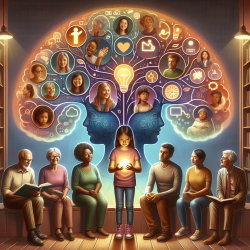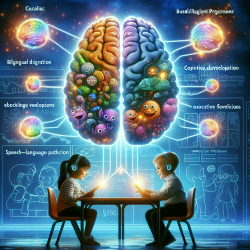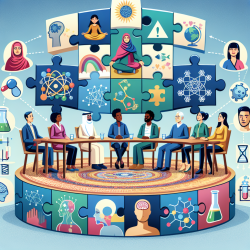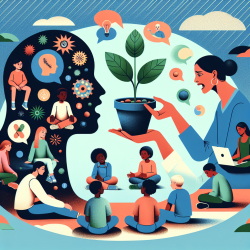Introduction
In the realm of mental health services, particularly for children, innovative approaches are crucial for enhancing therapeutic outcomes. A recent study titled Designing a Library of Lived Experience for Mental Health: integrated realist synthesis and experience-based co-design study in UK mental health services explores the potential of the Library of Lived Experience for Mental Health (LoLEM). This approach could be a game-changer for practitioners seeking to enrich their therapeutic strategies.
Understanding the Library of Lived Experience
The concept of a Living Library involves individuals, termed as 'Books', sharing their personal experiences with 'Readers' in a structured setting. This model has been adapted to focus on mental health, aiming to humanize and deepen understanding of mental health experiences through direct dialogue. The study conducted in the UK utilized integrated realist synthesis and experience-based co-design to develop a comprehensive implementation guide for LoLEM.
Key Findings and Implementation Strategies
The study identified five context-mechanism-outcome (CMO) configurations that are pivotal for successful Living Library events:
- Psychological Safety: Establishing a safe environment is foundational. Practitioners should implement guidance and support strategies tailored to their organizational settings to foster psychological safety.
- Humanizing Experiences: Direct conversations help humanize mental health experiences, fostering empathy and understanding among Readers.
- Exploring New Ways of Living: The interactive nature of these conversations allows Readers to explore and learn from Books' experiences, potentially discovering new coping strategies.
- Personal Empowerment: Books often feel empowered by sharing their stories, which can contribute to their personal development.
- Self-Authoring and Co-Editing: The process of sharing and refining personal narratives can lead to personal growth and a deeper understanding of one's experiences.
Implications for Practitioners
For practitioners in speech language pathology and related fields, integrating the LoLEM model into therapeutic practices can provide several benefits:
- Enhancing empathy and understanding among children and adolescents by exposing them to diverse lived experiences.
- Empowering children to share their own stories, which can be therapeutic and aid in personal development.
- Utilizing the model as a tool for reducing stigma and promoting mental health literacy.
Encouraging Further Research
While the study provides a robust framework, further research is essential to explore the long-term impacts of LoLEM on both Books and Readers. Practitioners are encouraged to participate in or conduct research to evaluate the effectiveness of this model in various settings, particularly in educational environments for children.
Conclusion
The Library of Lived Experience offers a promising approach to enhancing mental health services. By fostering psychological safety, humanizing experiences, and empowering individuals, this model can significantly improve therapeutic outcomes. Practitioners are encouraged to explore and implement these strategies to create impactful changes in their practice.
To read the original research paper, please follow this link: Designing a Library of Lived Experience for Mental Health: integrated realist synthesis and experience-based co-design study in UK mental health services.










